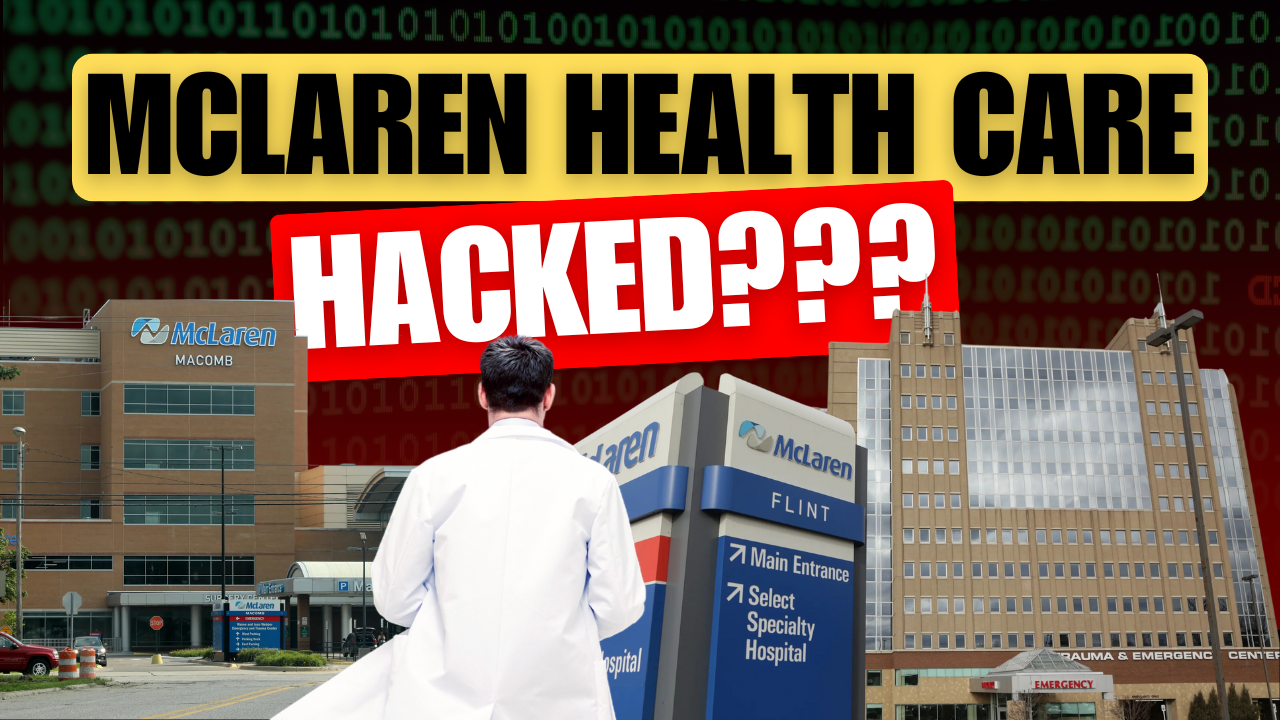In a troubling repeat of last year's events, McLaren Health Care in Michigan is once again grappling with a significant IT disruption, raising alarms about another potential cybersecurity incident. This disruption, impacting the hospital's computer and phone systems, is reminiscent of the ransomware attack the organization faced in the fall of 2023.
As a cybersecurity expert, it's clear to me that such widespread outages often signal a cyberattack rather than a simple IT issue. While routine updates can occasionally cause system downtime, the scale of this disruption points more definitively towards a cybersecurity breach. In today's advanced IT environment, it's uncommon for updates to cripple entire networks, a situation more typically seen in the aftermath of cyberattacks.
McLaren Health's Grand Blanc, Michigan facilities, along with its 13 hospitals, ambulatory surgery centers, physician offices, and more, have been affected. The health system issued a statement on Tuesday, acknowledging the disruption and apologizing for the inconvenience to patients. However, the lack of detailed information and the extended duration of the outage suggest a serious underlying issue.
Reports indicate that some McLaren websites, including those for its health insurance plans, McLaren Health Plan and McLaren Health Advantage, were also down as of August 6, 2024. Patients have voiced frustrations on social media about canceled appointments and delays in receiving test results, further illustrating the widespread impact of this incident.
David Jones, a spokesperson for McLaren, has provided limited information, stating that more details will be shared as they become available. This cautious communication approach is often advised by legal counsel during cyber incidents to control the narrative and manage potential legal repercussions.
This incident mirrors the previous ransomware attack on McLaren in late August 2023, which forced the health system to shut down its computer network and led to the leak of 2.5 million patient records on the dark web. The attack was claimed by the ransomware gang BlackCat (ALPHV), who boasted about stealing six terabytes of data and maintained a backdoor in McLaren's network.
The current situation at McLaren underscores the persistent vulnerability of the healthcare sector to cyberattacks. These attacks not only expose sensitive patient data but also disrupt essential healthcare services, posing significant risks to patient care. The frequency and severity of these incidents highlight the urgent need for the healthcare industry to strengthen its cybersecurity defenses.
Employees at McLaren have also been adversely affected, with some departments forced to shut down and staff being asked to use paid time off or face unpaid leave. This approach has sparked anger and frustration among workers, who feel unfairly burdened by the consequences of the cyberattack. Such measures can lead to further reputational damage and potential legal challenges from employees.
The recurring nature of these attacks on McLaren suggests that the healthcare system needs to reassess its cybersecurity strategies and invest more in protective measures. The industry must take these threats seriously and implement robust security protocols to safeguard against future attacks.



